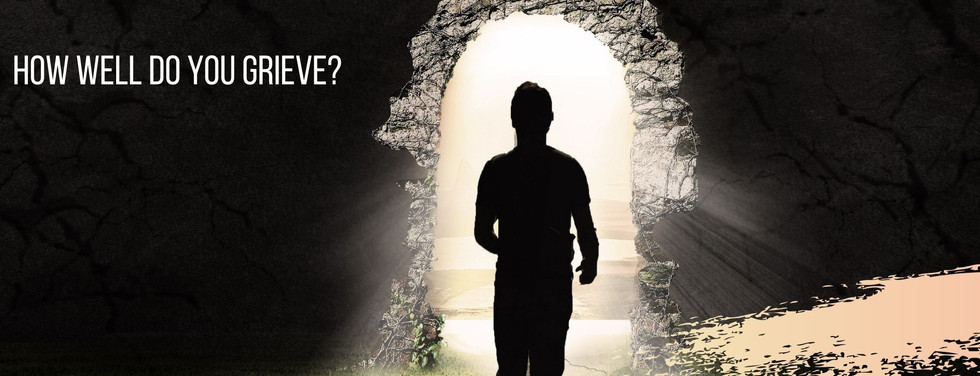How well do you grieve?
- Anneka Barrett
- Nov 5, 2020
- 3 min read
Grief is a scary word. A loss hurts. Yet it is something we all experience through the course of our lives. We often associate grief with the loss of a loved one, however it can also affect us through other types of losses. The loss of our freedoms going into lockdowns, a break up or moving home, to name a few. How often do we take time to acknowledge those feelings and the pain they leave us with. Pain is often an emotion we ignore and yet the more we do so the more painful it becomes. A wise tutor once taught me that Growth = Loss + Gain, since then I’ve always wondered about this simple equation. If we face a loss how much more can we grow?
Feelings of loss are experienced in a very personal way which makes it very hard to define and explore as a universal concept. There is however, one universal truth, there is no right way to grieve and there is no right amount of time to grieve . There are a lot of factors that can influence how you process loss; the event itself, your personality, past life experiences and your own unique coping style. This is why grief can often feel like a lonely place to be.
Understanding how grief is processed can give us some insight into how to ride out the waves that can often seem so all consuming. There is a model for grief, The Five Stages of Grief by Elizabeth Kubler-Ross. See if you recognise your loss in any of these stages.
Denial
Grief is an overwhelming emotion. It’s not unusual to respond by pretending the loss or change isn’t happening. Denying it gives you time to more gradually absorb the news and begin to process it.
Anger
Anger masks pain. Anger may be redirected at other people, or you may even aim your anger at inanimate objects. You can read more about exploring anger here.
Bargaining
During grief, people often feel helpless. In those moments it’s not uncommon to look for ways to control your experience. In the bargaining stage of grief, you may find yourself thinking a lot of “what if” and “if only” statements.
Depression
Sometimes this is referred to as the quiet stage of grief. In the early stages of loss, you may be running from the emotions, trying to stay a step ahead of them. By this point, however, you may be able to embrace and work through them in a more healthy/meaningful manner.
Acceptance
Acceptance is not necessarily a happy stage of processing a loss. It doesn’t mean you’ve moved past the grief or loss. It does, however, mean that you’ve accepted it and have come to understand what it means in your life now.
You can overcome the pain you may feel, remember the wise tutor I told you about at the beginning who said Growth = Loss+ Gain. Here are my five ways in which you can help yourself to experience loss:
1. Acknowledge your pain - it is part of you.
2. Accept that Grief will trigger things in unexpected ways - Grief is sneaky. Grief can surprise you, you could find yourself angry at something which wouldn’t usually bother you. Understanding when this does happen that it’s your grief surfacing will give you valuable awareness of your pain.
3. Understand that this process is unique to you - Your grief, just like you, is unique. Try not to look to others' experiences to map your own.
4. Seek out support - Just because your experience is unique does not mean you must go it alone. Talk to your friends, family or a counsellor.
5. Recognise the difference between grief and depression. - It’s important to understand there is a difference between grief and depression. Often the symptoms overlap but there are clear markers to look out for. Grief will lessen over time, depression on the other hand is often more persistent. There is little or no let up.
Talking about grief shouldn’t be taboo. We shouldn’t feel that our sadness isn’t acceptable to feel. It can be scary, yes, but often the things that scare us are often where our biggest learnings come from. So spend some time allowing your grief to be acknowledged today.
Remember whatever you are going through, you aren’t alone.







Comments